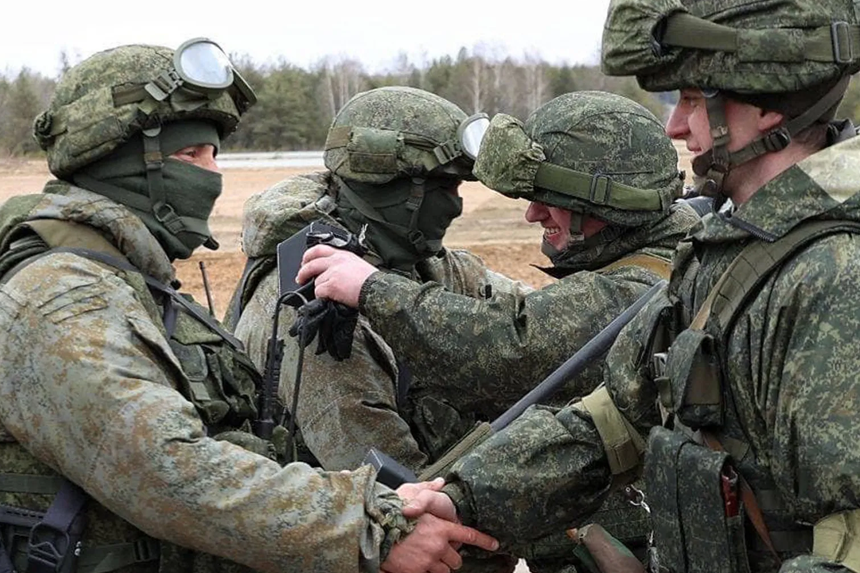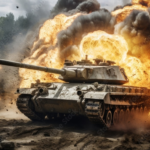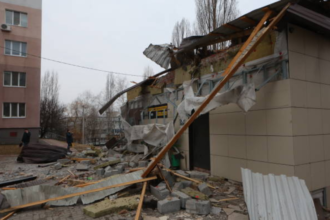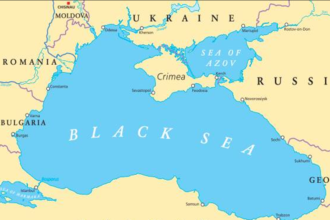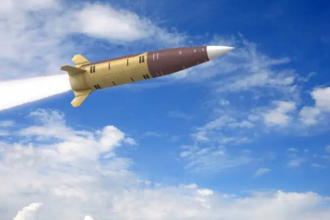Former Russian nuclear force member Anton was stationed at a top-secret nuclear weapon site on the day Russia started its full-scale invasion of Ukraine in February 2022. He remembers that his base was under complete combat alert right from the start of the war. “We only had exercises before that. But the weaponry was completely in place on the day the battle began, Anton notes. “We were ready to theoretically launch the forces into the sea and air and carry out a nuclear strike.”
From a secret place outside Russia, Anton, whose name has been altered for safety, related his experience. His location and identity are hidden for safety since he runs into danger when speaking out. He belonged to the elite, highly guarded Russian nuclear military, a unit unknown to outsiders.
Inside the nuclear base, what was daily life?
Anton characterizes the nuclear base as a highly separated and under-control setting. “We were simply defending the nuclear weapons; we were not fighting in the war,” he explains. His unit was limited to the base with minimal outside-world access. We just had Russian state TV. I’m not sure. I don’t know exactly what it all meant. I went about my responsibilities automatically.
Anton’s story fits the public records of the day. Three days following Russia’s invasion of Ukraine, President Vladimir Putin directed Russia’s nuclear deterrence forces into a “special mode of combat service,” therefore indicating increased preparedness. He reports that Anton’s squad’s alert level stayed in place for two to three weeks.
On the base, life was under close regulation. “There is a quite rigorous selection process applied there. Everybody is a professional soldier; no conscripts exist, Anton says. “Everyone is subject to continual lie-detection exams and checks. The troops are not sent to fight; the pay is substantially higher. They are there to either execute or repel a nuclear strike.
Are Russia's nuclear armaments operational?
Anton is convinced that Russia’s nuclear weapons are in a complete operational state. “The nation boasts an enormous nuclear arsenal, a huge amount of warheads, including constant combat patrol on land, sea, and air,” he says. The maintenance of nuclear weapons is ongoing; it never pauses even for one minute.
With 1,700 of their 4,380 active nuclear weapons deployed or ready for action, Russia is thought to have Anton’s story runs counter to the opinion held by confident Western analysts who claim that much of Russia’s nuclear arsenal is out-of-date from the Soviet age. Anton objects, saying, “very simplified view from so-called experts.” He argues that Russia’s nuclear forces are totally functioning and battle-ready even if some of the weapons have advanced age.
Concerns over Russia’s possible use of smaller-scale but still highly significant non-strategic or tactical nuclear weapons have grown abound. With Putin approving changes to Russia’s nuclear policy, which now permits nuclear retaliation should Russia face a “massive attack” involving conventional missiles, even if the missiles come from a non-nuclear state but with support from nuclear power, the Kremlin has been making comments to test Western will.
What was the "Criminal Order" Anton turned away from following?
Not long after the war started, Anton claims he received an instruction he could not accept. He was instructed to give lectures to his troops using particular written policies that characterized Ukrainian citizens as “combatants” who should be “destroyed.” Anton says, “That’s a red line for me – it’s a war crime.” “I declared I would not disseminate this propaganda.”
Anton was punished by higher authorities and sent to a regular assault brigade far from the nuclear base. “These units are often sent into battle as the ‘first wave,’,” he writes, noting that Russian deserters have reported how “troublemakers” who oppose the war are used as “cannon fodder.”
Anton signed a statement refusing to participate in the war before he could be transferred to the front lines, which set off a criminal investigation against him. He showed records verifying his move to the assault brigade and the launched criminal case against him.
Why did Anton decide to leave Russia?
Anton decided to leave Russia even with the repercussions. He accomplished this under the direction of a volunteer group called “Idite Lesom,” “Go by the Forest,” English. This group helps deserters. After defying orders, Anton claims he felt unsafe living near the nuclear base. “If I had run away from the nuclear forces base, the local FSB Security Service would have reacted decisively, and I most likely wouldn’t have been able to leave the country,” he says.
However, Anton discovered a flaw in the top-level security of the system when he was moved to an average assault brigade. The less strict security policies in the assault brigade made his escape feasible. Anton claims his conscience and need to oppose the war drove him to depart.
“I wanted everyone to know that many Russian troops opposed the war,” he says. Help requests for the volunteer group assisting deserters have surged dramatically. “Deserters seeking assistance now number 350 a month,” they report.
What Are the Risks for Deserters?
Still, fleeing Russia has significant hazards. After attempting to flee overseas, Anton says at least one deserter has been killed; several more have been forcefully returned to Russia and subjected to trials. Nevertheless, Anton is still resolved to assist others in leaving. He acknowledges, “I understand the more I do that, the higher the chances they could try and kill me.”
Anton claims the Russian security forces are still seeking him even though he left Russia. “I work off the books, take precautions here, and I don’t show up in any official systems,” he explains. He has severed ties with his buddies still in Russia for his safety. “They have to go lie-detector tests; any interaction with me could start a criminal case.”
Anton understands the dangers his activities carry for himself and those he assists. “The more I do this, the higher the chances they could try and kill me,” he says, noting the ongoing risk involved in his goal to assist others in escape.
Anton’s account clarifies the covert and highly regulated character of Russia’s nuclear capabilities, the tremendous personal toll of the conflict, and the rising movement of deserters opposing the Kremlin’s aggressiveness. Though there are significant dangers, Anton’s choice to speak up provides a rare and potent window into the inner operations of one of the most powerful nuclear arsenals in the world.


